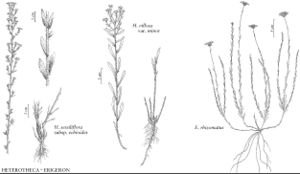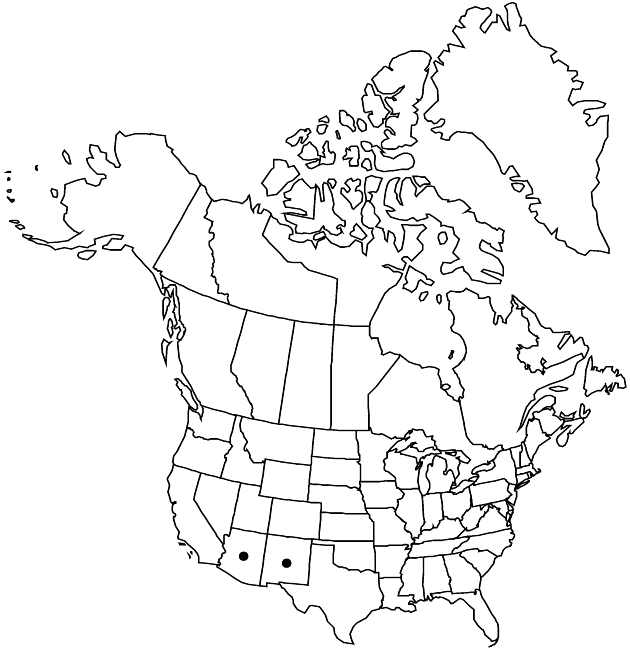Difference between revisions of "Erigeron rhizomatus"
Brittonia 6: 274. 1947.
FNA>Volume Importer |
imported>Volume Importer |
||
| (5 intermediate revisions by 2 users not shown) | |||
| Line 8: | Line 8: | ||
}} | }} | ||
|common_names=Zuni fleabane | |common_names=Zuni fleabane | ||
| + | |special_status={{Treatment/ID/Special_status | ||
| + | |code=F | ||
| + | |label=Illustrated | ||
| + | }}{{Treatment/ID/Special_status | ||
| + | |code=E | ||
| + | |label=Endemic | ||
| + | }}{{Treatment/ID/Special_status | ||
| + | |code=C | ||
| + | |label=Conservation concern | ||
| + | }} | ||
|basionyms= | |basionyms= | ||
|synonyms= | |synonyms= | ||
| Line 33: | Line 43: | ||
-->{{#Taxon: | -->{{#Taxon: | ||
name=Erigeron rhizomatus | name=Erigeron rhizomatus | ||
| − | |||
|authority=Cronquist | |authority=Cronquist | ||
|rank=species | |rank=species | ||
| Line 47: | Line 56: | ||
|publication title=Brittonia | |publication title=Brittonia | ||
|publication year=1947 | |publication year=1947 | ||
| − | |special status= | + | |special status=Illustrated;Endemic;Conservation concern |
| − | |source xml=https:// | + | |source xml=https://bitbucket.org/aafc-mbb/fna-data-curation/src/2e0870ddd59836b60bcf96646a41e87ea5a5943a/coarse_grained_fna_xml/V19-20-21/V20_559.xml |
|tribe=Asteraceae tribe Astereae | |tribe=Asteraceae tribe Astereae | ||
|genus=Erigeron | |genus=Erigeron | ||
Latest revision as of 20:04, 5 November 2020
Perennials, 25–45 cm; rhizomatous, fibrous-rooted, roots clustered, relatively thick (sometimes forming clumps to ca. 30 cm diam.), rhizomes or rhizomelike caudex branches creeping-ascending, slender, scale-leaved, without well-defined central axes. Stems erect, simple or 1–3-branched from near bases (secondary stems more densely leafy), sparsely strigose to strigoso-hirsutulous, sometimes sparsely minute-glandular. Leaves cauline; proximal blades narrowly oblong to oblong-oblanceolate, quickly linear, 50–100 × 1–3 mm, relatively even-sized distally, margins entire, ciliate, faces glabrous, eglandular. Heads 1 (rarely 2–3 from proximal branches). Involucres 6–7 × 13–16 mm. Phyllaries in 4–5 series, sparsely strigose, sometimes sparsely minute-glandular. Ray florets 25–45; corollas white with abaxial lilac midstripe, 6–7 mm, laminae not coiling or reflexing. Disc corollas 4.8–5.6 mm. Cypselae 3.5–4.5 mm, 5–6-nerved, faces glabrous; pappi: outer of setae, inner of 25–35 bristles. 2n = 18.
Phenology: Flowering May–Jul.
Habitat: Nearly barren detrital clay hillsides or benches, shale-derived soils (often seleniferous) of the Chinle or Baca formations, usually n- or e-facing slopes, ponderosa pine and piñon-juniper woodlands
Elevation: 2200–2400 m
Discussion
Of conservation concern.
Selected References
None.

